Five days before I left the comfortable spa town of Harrogate, northern England, I was given a book. My better half and I were about to embark on a year of travel around Australia, and my potential mother-in-law felt the need to educate me on the country’s “fragile and dangerous eco-system”. So at the tender age of 28, I sat by the fire with two jam butties (sangers) and turned over the first page of The Biggest Frog in Australia.
This Dreamtime story sees a huge frog drink Australia’s water supply in one mouthful, transforming lakes, rivers and gorges into empty passages. Native animals then try to return the water to the land by taking it in turns to make the frog laugh. It’s the perfect story to teach children the value of water and how to respect the country. It’s also a subtle way of telling a big kid like me that I shower way too long.
Eights months later we found ourselves driving from Perth to the Pinnacles Desert, and then onto Kalbarri National Park. With temperatures reaching 45°C, we knew the route we were taking but didn’t really know the intricate details: like the best time of day to visit a place, how manageable the terrain was and points of interest along the way. So by the power of trial and error (that big frog is laughing at us now), this is what we found.
Pinnacles Desert
Around two hours north of Perth is a manageable part of the desert. In Nambung National Park, the plain of the Pinnacles is sprinkled with limestone pillars that protrude from the sand like shards of honeycomb. Scientists are still debating how they were formed. If, like us, you’re driving a two-wheel drive car with low clearance, stick to the designated track and drive slowly to avoid slips and dips. It’s also commonplace to pull up the car and go for a short walk around sections of the park. So wear a hat, drink plenty of water, get there early and take precautions against extreme heat. It is the desert after all.
Jurien Bay
Strategically placed on Indian Ocean Drive, Jurien Bay is frequently used as a lunch and picnic spot for west coast travellers. It’s the kind of place that’s a lot more relaxing and prettier than the busier town of Geraldton (two hours north). But below Jurien Bay’s modern jetty we found an underwater version of The Pinnacles, a decent-sized snorkel trail and a tranquil lagoon where sea lions apparently come to feast on shellfish (so the locals say). Not just a pretty face, eh?
Port Gregory
Bright colours are attractive to humans. And there’s nothing more mesmerising than seeing a huge body of water dyed pink. Port Gregory is a quiet fishing village that’s home to one of Australia’s more conspicuous attractions. Hutt Lagoon (the pink lake) is pinker than a Barbie doll’s handbag; dyed from carotenoid-produced algae and packed full of salt. Over 14 kilometres in length and sandwiched by some great vantage points, this is one pink salt lake you won’t need a helicopter for. It’s also important to note that there’s no through road in the small town of Gregory. If you head there to grab a bite to eat at the general store, you’ll have to turn back on yourself to get to Kalbarri. But it’s worth the extra 15-kilometre round trip.
Kalbarri coast
Kalbarri National Park is made up of coastal viewpoints, lots of different treks, sprawling gorges, cliché adjectives and superlatives. That’s why we’re keeping it simple and separating the coastline and gorges.
Hyper real views of rock formations such as Nature’s Bridge, Castle Cove and Island Rock stretch out along the coast, with the rocky bay of the Grandstand delivering a worthy example of a natural amphitheatre. There are also some pretty amazing swimming/snorkelling spots on Red Bluff beach, with the small lagoon of Blue Holes containing a healthy population of fish. Red Bluff cliff is the showstopper, as it’s the perfect, rugged viewpoint to catch the sun rising over the national park and setting over the ocean. But it’s also a place you need to be prepared for. Coastal winds are extremely strong in Kalbarri and regularly hit up to 40 kilometres an hour.
The 5-kilometre trek from Rainbow Valley to Mushroom Rock is ideal for the late afternoon. This is a costal trek that feels prehistoric, taking you through baked fields to boulder-laden spaces that look like they’ve never been touched. Keep an eye for kangaroos too; they love this place at dusk.
Kalbarri gorges
The gorges of Kalbarri are monumental and provide a glance into how Australia may have looked a lifetime ago. “Nature’s Window” (including the Loop) and Z-Bend gorges are Kalbarri’s pride and joy. With a dark red blend of panoramas, treks that require physical investment (temperatures are extreme on the escarpment) and adventurous descents into the cool waters of gorges, there’s a reward for every ounce of sweat you put in. And plenty of prizes for those who prefer not to perspire.
Good things don’t come easy though (says who?). If you’re based in the town of Kalbarri, bitumen runs through the park for the most part. But with around 20 kilometres of corrugated road leading the way to the gorges, an all-terrain vehicle or a 4WD with high-clearance is better suited. Nevertheless, it’s off-road adventure that makes this country tick. We carefully navigated our Toyota Corolla, managing to eject every single wheel ornament and test the durability of our suspension. Sometimes trial and error is not so clever.
Words by Dean Harries. Images by Trina Gill.

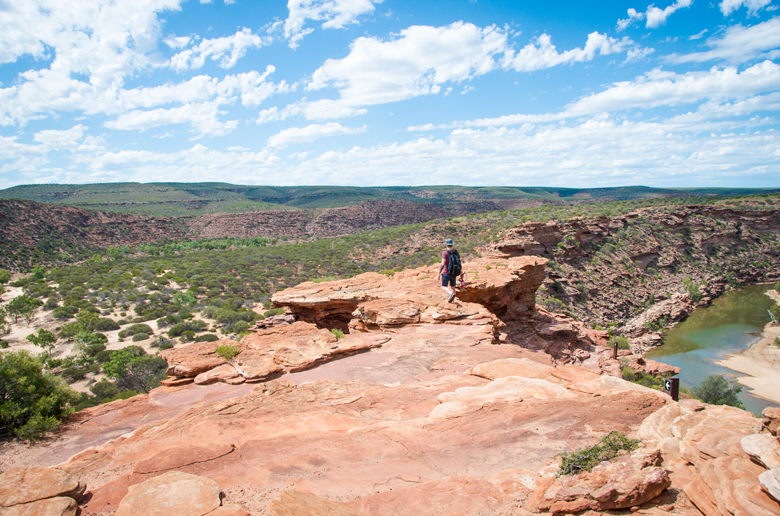
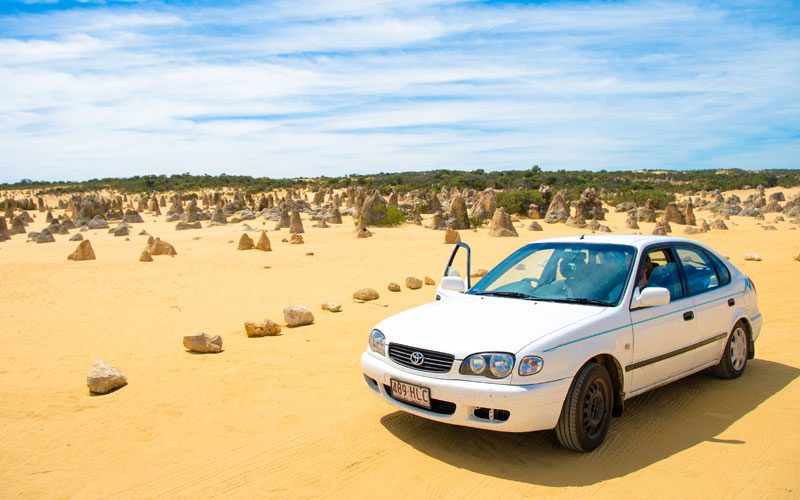
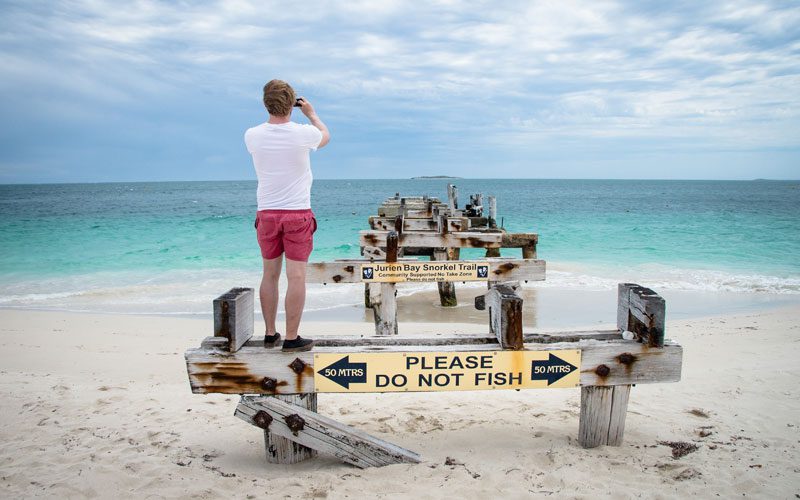
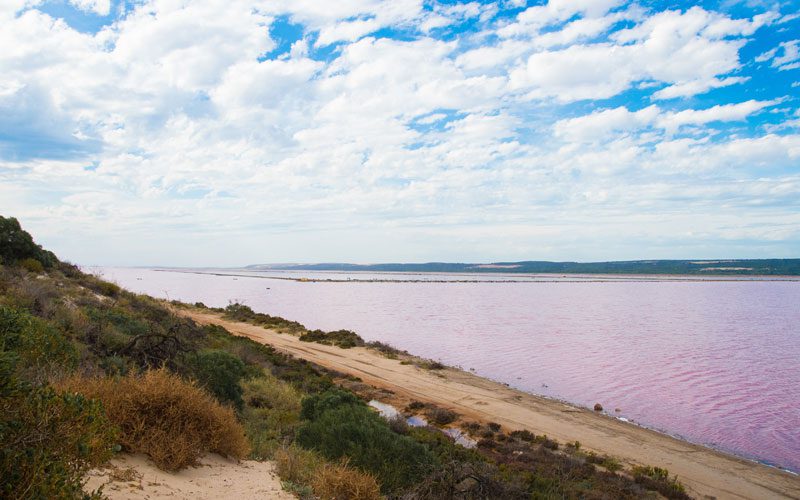
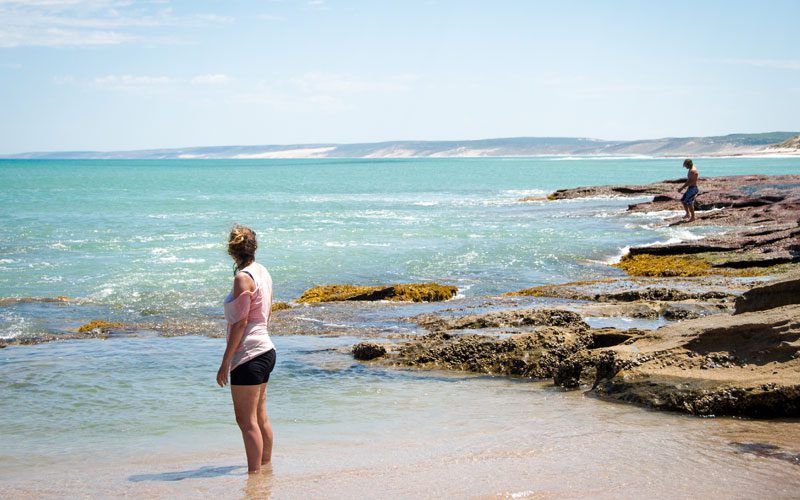
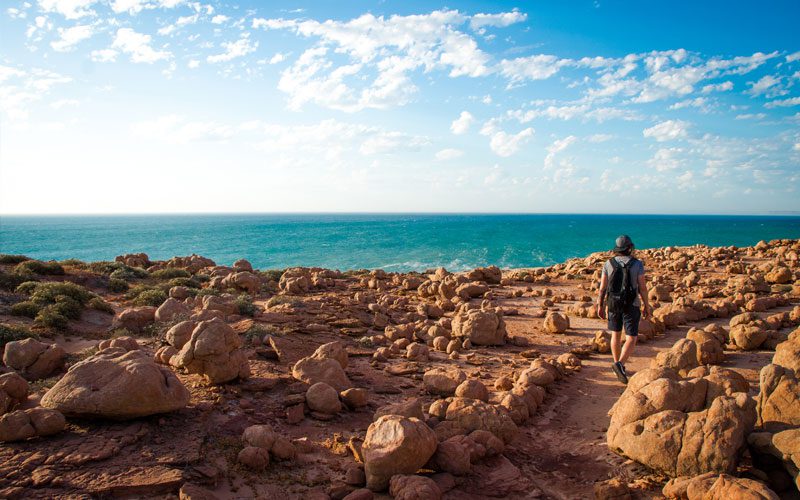
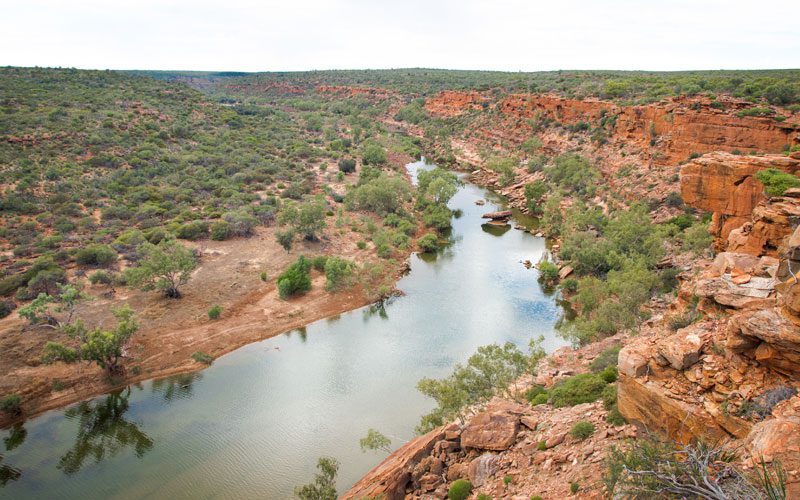










1 comment
Your blog is very inspiring